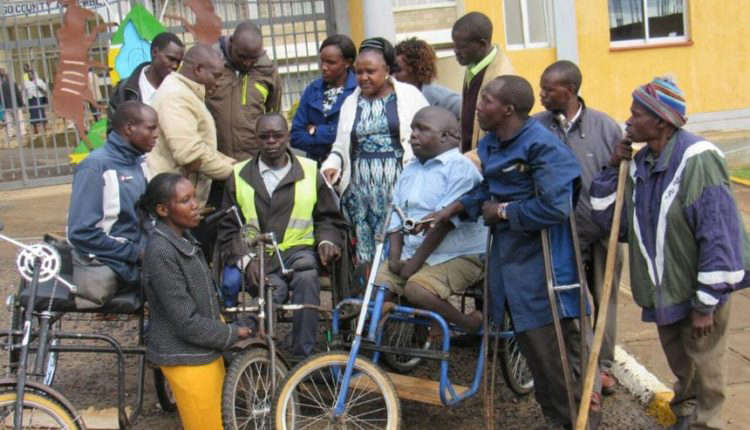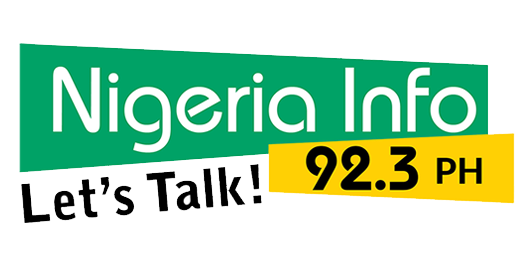
Persons with Disabilities (PWD) in Nigeria face numerous challenges, including unequal access to health services compared to the general population due to structural and system barriers.
The economic crunch occasioned by the devaluation of the naira and the removal of subsidy on petrol by the federal government, has led to a 33.69% headline inflation rate in 2024.
The policies further complicate the PWD challenges. They say these challenges make them feel treated like second-class citizens in the country, despite their vulnerability.
Usman Amina, a crippled pregnant woman in Kano, was diagnosed with breast cancer shortly before her delivery, a development that prevented her from breastfeeding her child.
The child passed away over a lack of money to buy milk for his daily feeding. Amina also died of breast cancer a few months later.
Suleiman Zuberu, a member of Persons with Disabilities, narrated their fruitless efforts to save Amina and her baby, as well as the treatment meted out to them at hospitals during the trying period.
“Amina’s husband is also a physically challenged person because we hardly see other people marrying us.
“Amina was treated badly at various hospitals, sometimes abandoned, before her demise.
“We did not have enough money for her treatment, so we were carrying her from one hospital to another. We first lost her baby because there was no money to buy milk, and Amina also died later,” Zuberu said.
Also, Mrs. Celine Barnabas, another PWD member, recently had an accident, which attracted a lot of emotions, but with time, people got tired of her.
Like many other people with disabilities (PWD), Barnabas, who has been a caregiver for several years, did not see the next phase of her life turning endurable, but fate held her back.
After three months of support following the unfortunate incident, family members who were rallying around her started retiring back to their normal lives.
"The moment everybody gets to understand that this thing is going to take a longer time for recovery, we start seeing adjustment in attitude.
“That does not mean that they don't love us; they still love us, but that message is that you better make a mental adjustment."
According to her, some caregivers can be violent and abusive, while others are loving people.
"I have been abused, and even in the hospital where I was, I have seen people that were abused, and in my situation, I was able to fight for them in Abuja," the survivor recalled.
Federal Government Economic Policies Complicate PWD Challenges
Mrs. Glory Aufat, a nursing mother with a disability, said they are only struggling to survive as a result of the hyperinflation being experienced across the country.
"As a nursing mother, I have stopped seeing the doctor because of a lack of transport fares, but we hope that the government will do something to address the situation," she said.
Also, Mrs. Christina Abiodun, the female leader of the Spinal Cord Injury Association in Osun State, decried the difficulties confronting them every day, especially with their health condition.
Eighty Percent of Spinal Cord Survivors Prone to Bed Sores
Abiodun pointed out that eighty percent of spinal cord survivors are prone to bed sores and cannot afford the needed medical materials for treatment due to the economic hardship in the country.
"Accessing healthcare services for spinal cord survival is uneasy. I wanted to buy an antibiotic some days ago; I was told it was now N24,000. I was surprised; I can't afford it.
“Many PWDs are at the mercy of families and friends, and some who are abandoned develop depression, leading to their early deaths,” she said.
Health Insurance Scheme Unfavorable to PWDs
The rebirth of democracy in 1999 brought about health insurance for Nigerians, which has helped to reduce out-of-pocket expenses on healthcare.
But bureaucratic bottlenecks are also hindering PWDs' access to free health insurance policies, and health workers’ disability stigma impedes accessibility to health services.
In Nasarawa State in north-central Nigeria, there is a health insurance scheme for indigenes, but the proportion of PWD beneficiaries is minimal, according to Dr. Akpan Nseabasi.
Nseabasi, the head of the Government Special School Clinic in Lafia, the state capital, described the proportion as abysmal, urging the state government to improve the figure.
Also, a visually impaired Oluwafemi Stephen said the PWDs were going through a turbulent time in Osun State because the health insurance scheme provided by the state government was only beneficial to civil servants.
"Drugs are now very expensive, health facilities are not accessible to all PWDs, and awareness of the health insurance scheme for PWDs is not effective.
“The government should make the health insurance scheme free for all children with disabilities in special schools,” he appealed.
Public Structures Inaccessible to PWDs Despite Laws
The 2018 Act on Discrimination Against Persons with Disabilities (Prohibition) stipulates a five-year transitional period for modifying public buildings, structures, and automobiles to make them accessible and usable for people with disabilities.
Nineteen out of 36 states have adopted the act, yet its implementation has been challenging so far.
Six years after the disability law, Mrs. Abiodun said most of the hospitals are not accessible to those in wheelchairs because they don't have ramps or other medical facilities.
Also, Hajiya Asama'u Yahaya, the Executive Director (ED), of the Women with Disability Initiative, concurred with Abiodun’s submission.
“There are hospitals where their labs have narrow doors; you can't access them on a wheelchair; samples are taken at the veranda, which is not supposed to be so," she said.
PWDs Sidelined in Media Awareness Campaigns
Additionally, PWDs are sidelined in media awareness campaigns, with information regarding people with partial vision or visually impaired not being in braille print and not having an interpreter caption on television.
Yahaya berated the mechanism of information dissemination at the hospital and mainstream media without factoring in the peculiarities of the PWD.
"For instance, information regarding people with partial vision or people who are visually impaired is supposed to be in braille print.
“There is a lot of health information on television without a sign language caption; like jingles that are always run on TV, there is no interpreter caption on those jingles," she observed.
Health Workers Deficient in Knowledge About PWD Care
On the attitude of health workers toward the PWD, the Executive Director said some of the health workers have limited knowledge of how to handle their members.
"Their approach to people with disabilities is so harsh, most especially during antenatal care (ANC). They don't consider that there are hearing-impaired women who are attending ANC, she disclosed.
According to Asama'u, there is no provision for the PWD to understand the instructions given during the ANC and even in the labor room.
"They don't consider the hearing-impaired person in the labor room for such instructions from the midwifery and the rest," she noted.
The ED also said most of the health care services are expensive, and there is no free medication for PWD in the facilities.
"They have to buy; most of the investigations, tests, X-rays, and the rest are expensive for the PWDs, and with this hyperinflation, even the drugs are also expensive," she stated.
PWDs Seek Drug Subsidies and Duty Waivers on Imported Drugs
Asama'u called on the government at all levels to subsidize most of the services in the facilities for PWD to access and grant waivers of import duty on their imported drugs.
On his part, Mr. Ismaila Iliya, Secretary of the Joint National Association of People With Disabilities (PWD), said for fear of harassment, PWD are scared of going to the hospital, forcing them to look for other ways to address their health challenges.
"Women with disabilities are not exempted from the harsh treatment of the nurses. Some people even scorn them for becoming pregnant despite moving in wheelchairs.
"Our message to the government is that PWD are also citizens of the country, and there is no law that discriminates against us," he said.
The situation is similar in South-South Nigeria, where the PWD are lamenting the surge in the cost of healthcare services and the unfriendly treatment being meted out to them at the health facilities.
A hearing-impaired PWD, Kalaba Tenbe of the Special School for Handicapped Children in Port Harcourt, cited financial constraints amid the economic downturn as a major challenge.
Mrs. Tembe spoke to this reporter through Mr. Owajino Joseph, an interpreter who doubles as the vice principal of the school.
According to her, the inability of caregivers to communicate with her during pregnancy and childbirth even worsened her challenges.
However, to bridge these gaps, a former Secretary General of the Joint National Association of Persons with Disabilities, Baridapdoo Ngo, called for a legislative bill to facilitate the establishment of special units for PWDs at various hospitals across the country.
Also, Suleiman Suberu, a PWD member from Kano, called on governments to allocate PWD desk officers across various ministries, departments, and agencies.
Gombe State Government Trains Caregivers on PWD Handling
To improve the caregiver and the PWD relationship, the Gombe State Ministry of Health is training caregivers to provide safe healthcare for PWD without stigmatization, with the Permanent Secretary, Mohammed Jalo urging other states to follow suit.
“We also identified some vocal persons saddled with the responsibility of writing reports on their needs and concerns, then proffer solutions to them,” he said.
Federal Government to Seal Structures Inaccessible to PWDs
Responding to the PWD worries especially on the unfriendly structure of the hospitals, the federal government said it would soon start sealing the public offices that are inaccessible to the PWDs.
Mohammed Abba-Isa, the senior special assistant to the president on special needs and equal opportunities, who made the threat, said President Bola Tinubu is expected to launch the presidential committee for accessibility this third quarter (July 2024).
Foundation Questions Willpower
But Jake Eppele, the founder of the Albino Foundation, questioned the government's ability to enforce public building sealing in a situation where the presidency violates the law.
“As I speak to you, in the State House in Abuja, the office of Mr. President (Aso Rock) is violating the 2028 Act on Discrimination Against Persons with Disabilities (Prohibition).
“Most of the buildings at respective state government houses across the country are not accessible by our members, so how can they enforce the law on other public buildings?” he questioned.
According to him, addressing the significant issues affecting the over 20 million Persons with Disabilities in the country is crucial for their well-being and preventing the usual second-class treatment.


